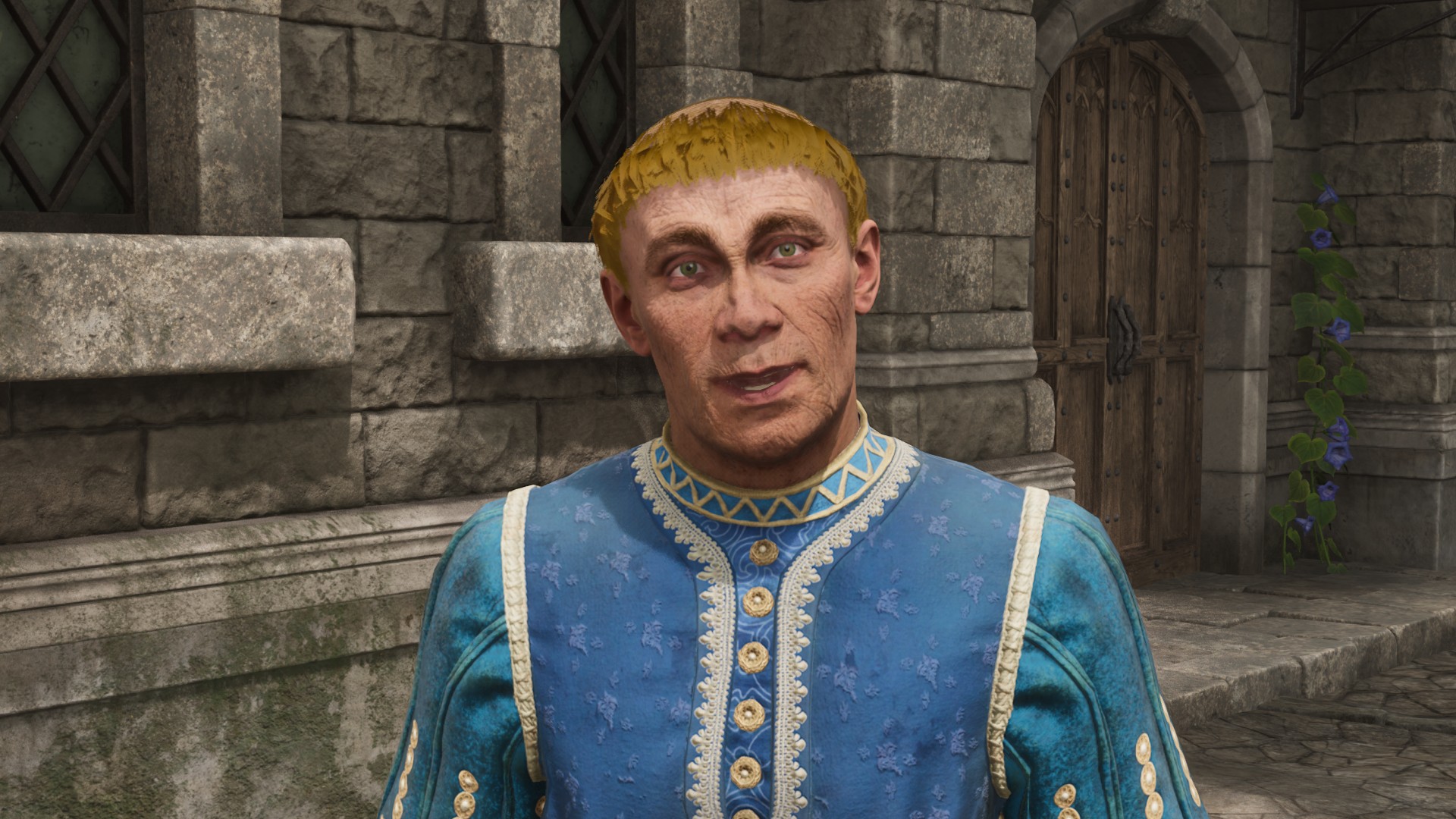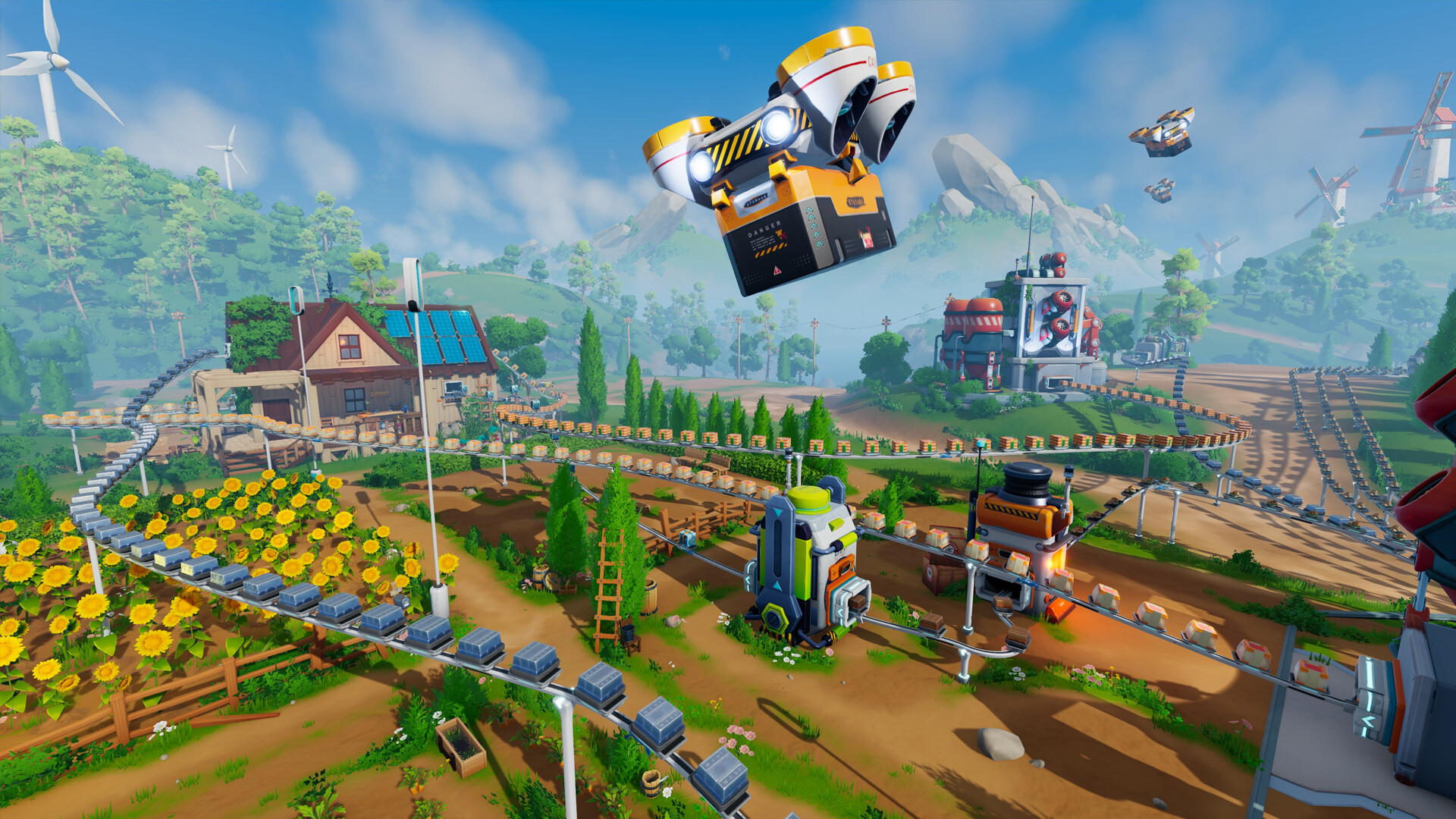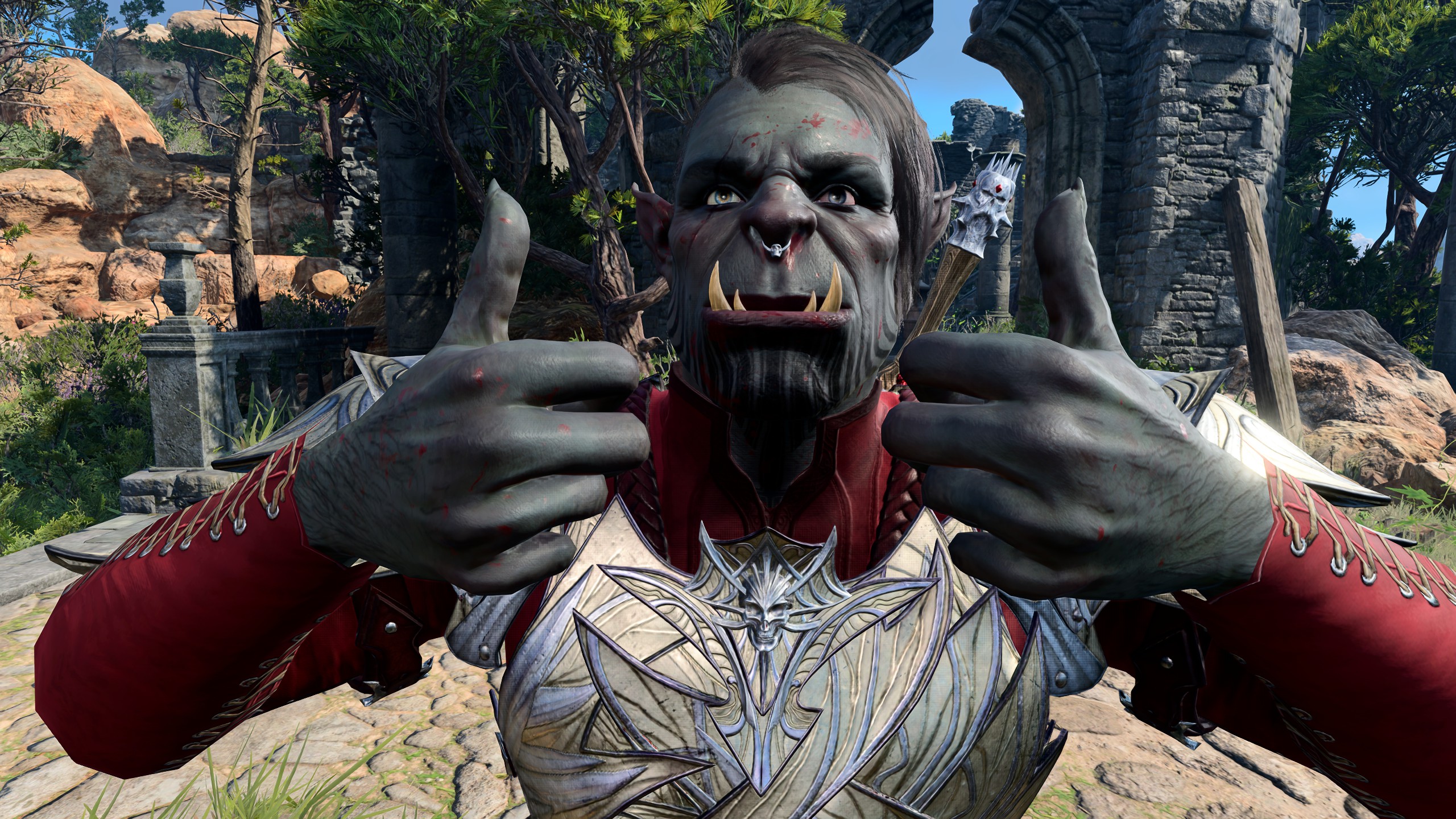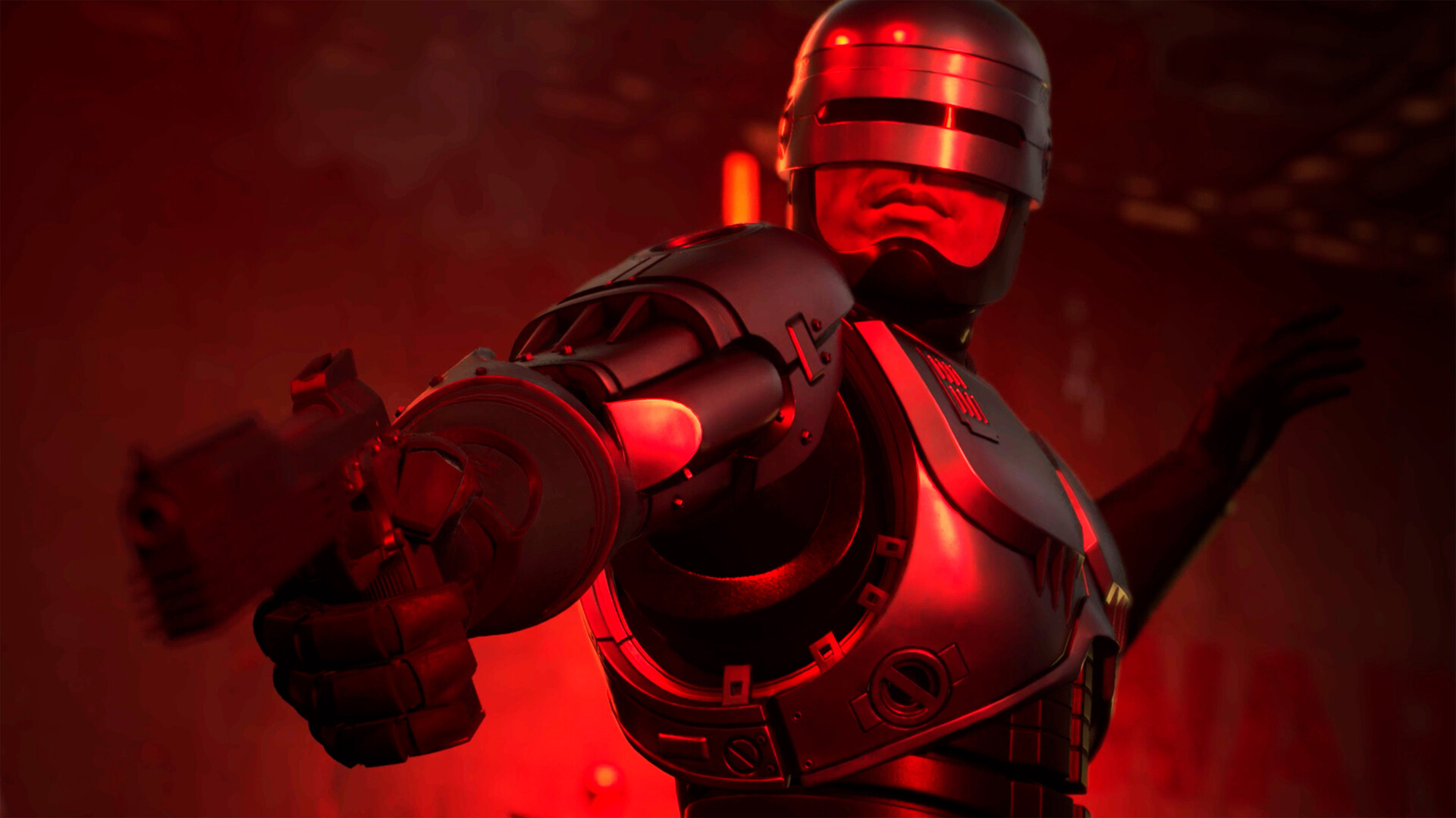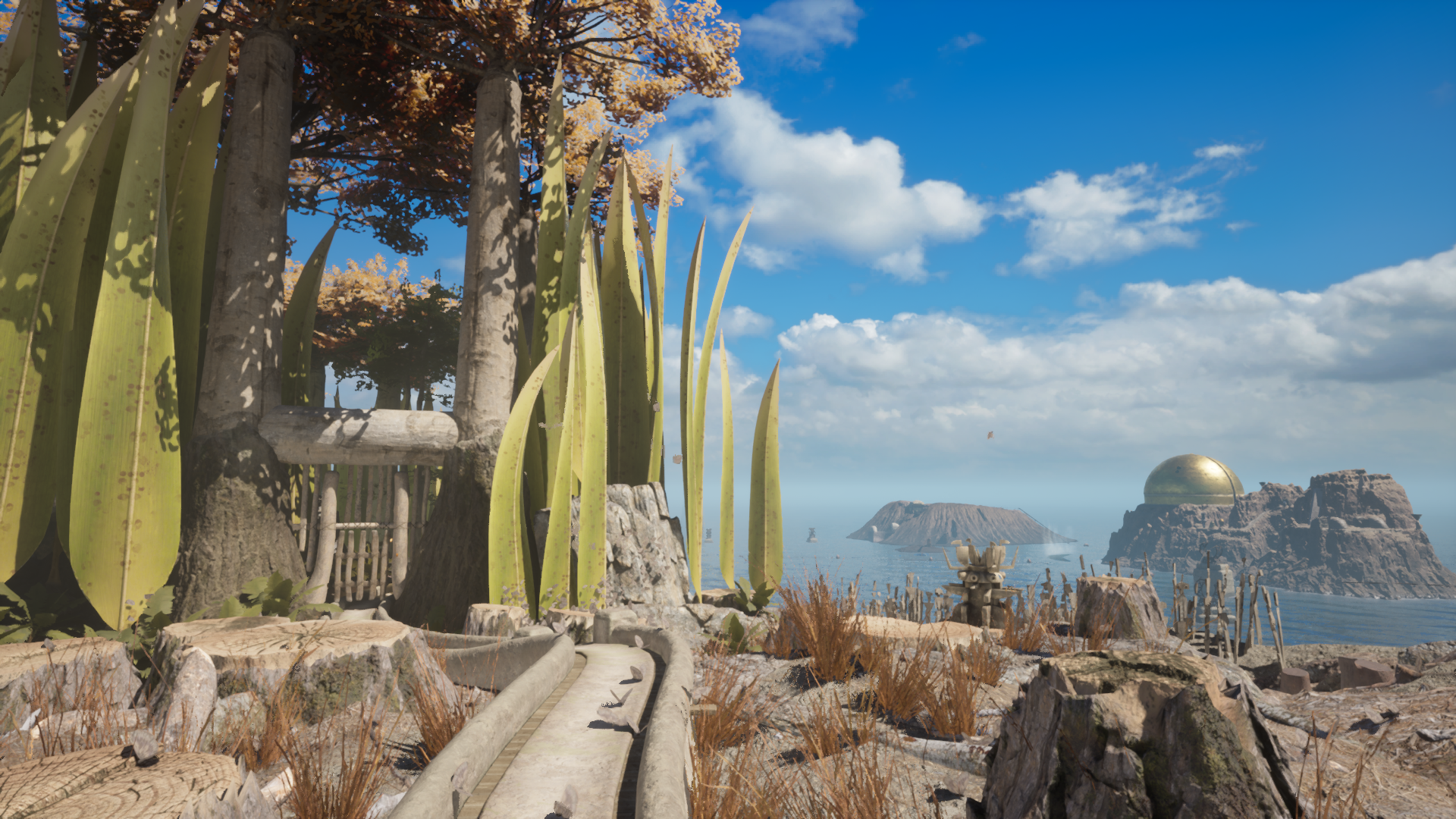
To be this good takes Ages.
Atrus. Linking books. Ages. A big cardboard box illustrated with an imposing sphere-like structure, filled with CDs to install. Weird, weird, puzzles. Riven, like its equally famous prequel Myst, is one of those games that made such a splash back in the ’90s that it feels a little familiar—a little revered, even—to just about everyone of a (my) certain age. A true classic, known even to those who never had any intention of playing it.
What is it? A classic puzzle adventure, expertly updated
Release date: 25 Jun, 2024
Expect to pay:
Developer: Cyan Worlds Inc
Publisher: Cyan Worlds Inc
Reviewed on: Intel Core i7-7700HQ, GTX 1070, 16GB RAM
Multiplayer: No
Steam Deck: Unsupported
Link: Steam
Going back to the original in the cold light of 2024 is hard: it’s a 640×480 flipbook of a game, much of its original multi-disc awe and wonder lost to time. This remake brings all of the ancient magic back in an instant.
At the risk of stating the obvious: this is Riven, but in 3D. And I don’t just mean the old environments, polished domes, and worn machinery are all still there. This is the most successful, spiritually accurate real-time recreation of that unmistakable pre-rendered ’90s CG style I’ve ever seen. Everything’s slightly unreal. The sky’s almost too blue, the outdoor sun is always just a bit too bright, and interior lights have an attractive yet artificial pre-baked quality to their illumination. Rocky textures are sharp and intricate but never quite photorealistic. Foliage is too detailed yet naively simplistic all at once, giant single blades of green erupting from the dirt.
It’s beautiful. Stylish. Timeless. Being able to casually walk around environments that once took professional workstations hours to render from a single angle at much lower detail levels almost feels disrespectful to history, yet it immediately makes for a better adventure.
Somehow Riven still manages to look amazing even on relatively lowly modern hardware. Due to the unexpected and catastrophic failure of my usual machine I had to play this on a laptop that I would at best politely describe as potato-like, yet somehow its GTX 1070 still managed to hit 60FPS at 1080p at the game’s maximum graphical settings, with only a few rare, minor dips along the way.
Familiar landmarks in the distance help keep me grounded (Image credit: Cyan Worlds)
It took a while before I was relaxed enough to appreciate it all though, as Riven’s introduction is a narratively dense and confusing experience. As soon as the story begins I’m thrust into a mysterious place, being prepared for a journey to an unknown land by a man who hasn’t given me his name (although Myst players will know it). I’m given strange and barely described tools to free someone I’ve never met from the clutches of someone I’ve never heard of. After that I’m immediately trapped, robbed, the sole witness of a murder, released, and then left all alone with nothing but a satchel and some notes.
It’s a bewildering flurry of scenes that brilliantly sets the tone for everything that follows. I’m completely out of my depth by design—as counterintuitive as it may sound this actually helps to make the game more approachable, in a very Riven sort of way. Not knowing what’s going on, or even having a good idea of where I am, is this game’s idea of normal. And that means I’m not failing if I find some strange artefact inscribed with one of two different numbering systems and have absolutely no idea what to do with it. That just means I’m playing Riven.
The Riven remake preserves that unique sense of estrangement even though I’ve been to this world before. Not only have more than a few puzzles have been altered, making it impossible to blunder through the entire game with an old FAQ open in a tab, this remake also makes absolutely no concessions to modern tastes. I’m expected to do this all by myself, without any sort of helpful hint system to nudge me along or even the option to highlight interactive objects within my field of view. At first a part of me felt that perhaps the remake should’ve included something along these lines—a little bit of guidance, just to make sure everyone who wanted to try could reach at least one of the game’s multiple endings. But the more I played the more I realised that reaching the credits isn’t really the point, and to short-circuit the game into a simple list of tasks and glowing doodads would rob Riven of its appeal.
Don’t tell me, I’ve got this. Maybe. Err. (Image credit: Cyan Worlds)
Being able to look around Box Art Place feels surreal (Image credit: Cyan Worlds)
3D models replace the old bluescreen actors (Image credit: Cyan Worlds)
Remade foliage retains a convincingly ’90s sheen (Image credit: Cyan Worlds)
What hasn’t changed in 27 years is that this is less a game to be solved and more a place to be experienced. I’m supposed to poke and prod at everything I can see, to peek through small windows and pull at various dials and levers just to see what happens.
Sometimes I’m sure the entire point is simply to pause for a minute and admire the view—a golden beetle shining in the sun, vast expanses of water that seem determined to out-blue the skies above, strange non-spaces where the usual laws of physics no longer apply and “up” is a matter of opinion.
Because I’d been forced to adjust to Riven’s unhurried pace, because I’d been made to look around and really notice the world around me, I soon realised that hints and help are actually everywhere. Buttons and levers are always visually linked in some way to the object they affect. Secret passages are revealed in detailed notes. There is a reason for every coloured glow, every piece of parchment covered in an inky scrawl—I can even learn something useful by playing with children’s toys. It’s all important, eventually.
Which is how I ended up with two pages worth of scribbles on fictional counting systems and notes that read FROG=2???? and FISH THING IS??? It looked more like I was channelling the spirit of da Vinci than solving a puzzle in a game, but I wouldn’t swap that extraordinary effort for anything. The reward for solving a puzzle was more satisfying than completing an objective; it felt personal, like proof I’d explored with my eyes open and applied myself to a world that literally didn’t speak my language.
It’ll all make sense eventually. Honest. (Image credit: Cyan Worlds)
Bioluminescent fungi tastefully light the way (Image credit: Cyan Worlds)
Gorgeous scenery is as common as tricky puzzles (Image credit: Cyan Worlds)
A holiday photo, or a crucial puzzle? Why not both? (Image credit: Cyan Worlds)
Riven’s challenges might be obscure, but they’re surprisingly easy to keep track of. Thanks to a freeform notebook function I can take a screenshot of whatever it is I’m looking at and type in my own notes to go with it. It’s unorganised by design, Riven’s loose structure unsuited to an orderly labelling system. As the game goes on it almost becomes a travelogue in addition to a collection of important clues, a record of where I’ve been and what I spotted while I was there.
Riven’s as captivating in 2024 as it’s ever been. It’s an inventive puzzle game that demands an intense yet unhurried sort of commitment, and then lavishly rewards those who give it. It’s a vibrant alien world layered with lore and secrets. It has plenty of new twists on old solutions that will surprise its biggest fans but still appear seamlessly integrated to everyone else.
This is how you remake a classic.

